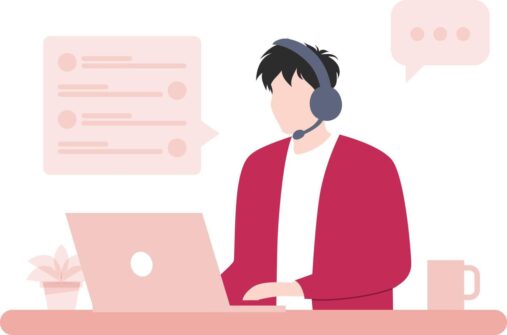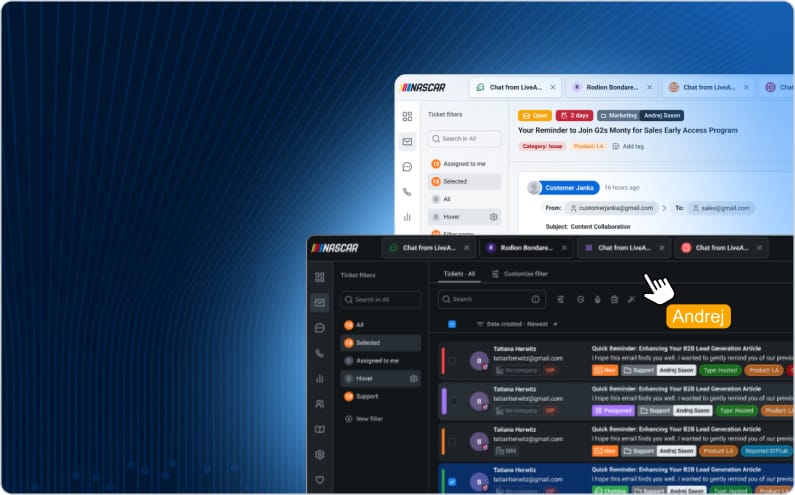Dive into the world of live chat, a dynamic and essential aspect of customer service. This article isn’t just about listing skills; it’s about unraveling how each skill can revolutionize your interaction with customers.
Imagine a customer, feeling frustrated over a delayed response about a product issue. This scenario changes dramatically when a chat agent equipped with quick response skills and product knowledge puts these abilities to use, resolving their issue in minutes. That’s the transformative power of effective live chat handling we’re exploring – turning potential customer frustration into satisfaction and loyalty.
What are chat handling skills?
Every career requires a unique set of skills to perform specific tasks. In the case of customer service agents, these include chat handling skills. They are the arsenal of abilities that enable a chat support agent to effectively manage live chat interactions. These skills extend beyond merely typing messages; they encompass understanding customer emotions, multitasking between multiple queries, and providing swift, accurate solutions.
Far from being just a technical requirement, these abilities are vital in ensuring that customers feel genuinely supported and assisted. Like in our earlier example, this means every customer concludes their chat interaction feeling heard, helped, and valued. To give you a clearer picture of what these skills entail, here’s a quick overview of the key areas we will be delving into:
- Communication skills
- Fast response and resolution time
- Multitasking skills
- Empathy
- Problem-solving skills
- Typing and data entry
- Industry expertise
- Positive attitude
- Understanding of brand voice
- Knowledge of live chat features
- Prioritizing customers’ privacy
- Being open to new ideas
Why are chat handling skills crucial?
Think about it – when a customer comes to you with a problem, how that problem is handled can make or break their perception of your company.
To give you an idea of just how impactful this is, let’s look at some research and live chat stats. Research has found that 89% of customers are more likely to make another purchase with a company after experiencing positive customer service.
Additionally, chat statistics from other studies state that nearly 38% of customers admitted to making a storefront purchase due to an engaging and insightful live chat conversation.
So, what does this all mean? Basically, those chat handling skills – like being a whiz at communication, empathizing like a pro, and solving problems at the drop of a hat – are more than just nice-to-haves. They’re crucial for keeping your customers coming back for more, and they play a big role in how much they’re willing to spend. It’s these skills that turn a simple chat into a memorable experience, making your brand stand out in a crowded marketplace.
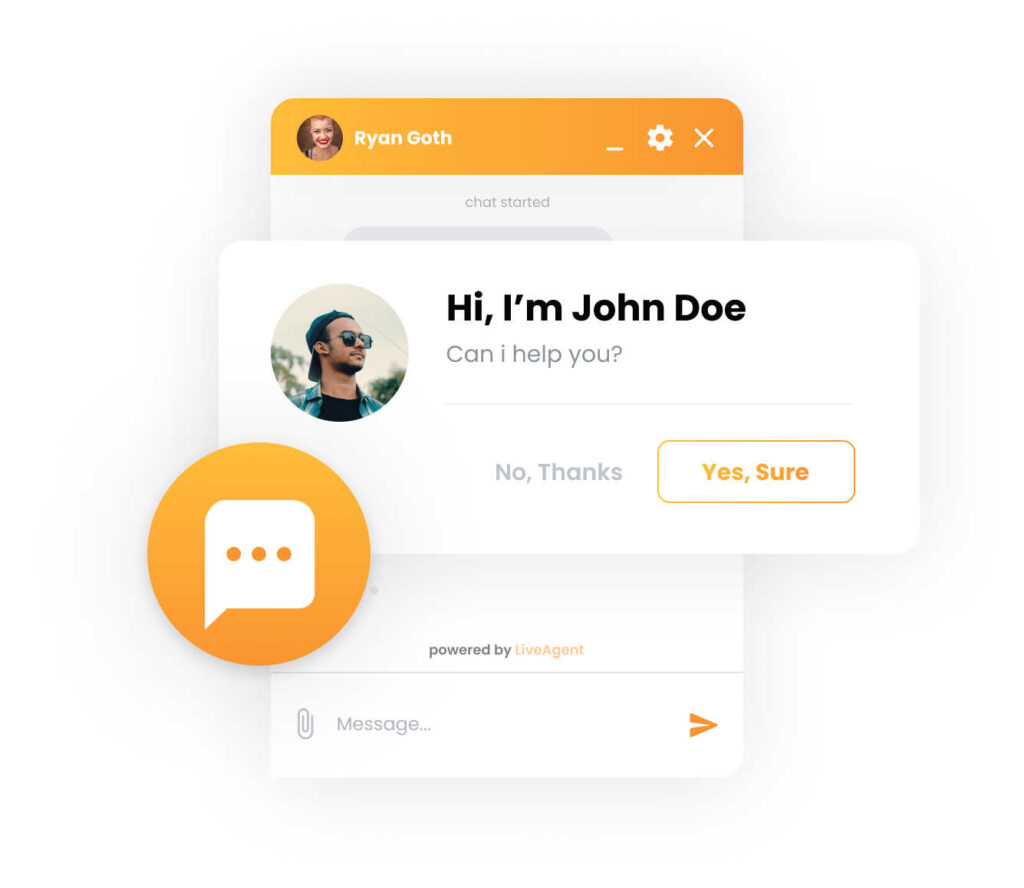
12 Chat handling skills every customer service agent needs
1. Communication skills
Effective communication lies at the heart of excellent customer service. In the fast-paced environment of live chat, misunderstandings or vague responses can quickly lead to a customer issue generating dissatisfaction and potentially escalating something that should have been rather simple to deal with.
To combat this, utilizing a feature like Canned Messages in chat software is invaluable. This essential tool allows agents to use pre-written, clear, and concise chat messages, ensuring consistency in communication across different agents and interactions. Canned messages significantly save time, thus maintaining a high standard of clarity and professionalism in every chat. Agents with less developed communication skills can learn from experienced agents who know how to respond effectively, bridging the gap between them.
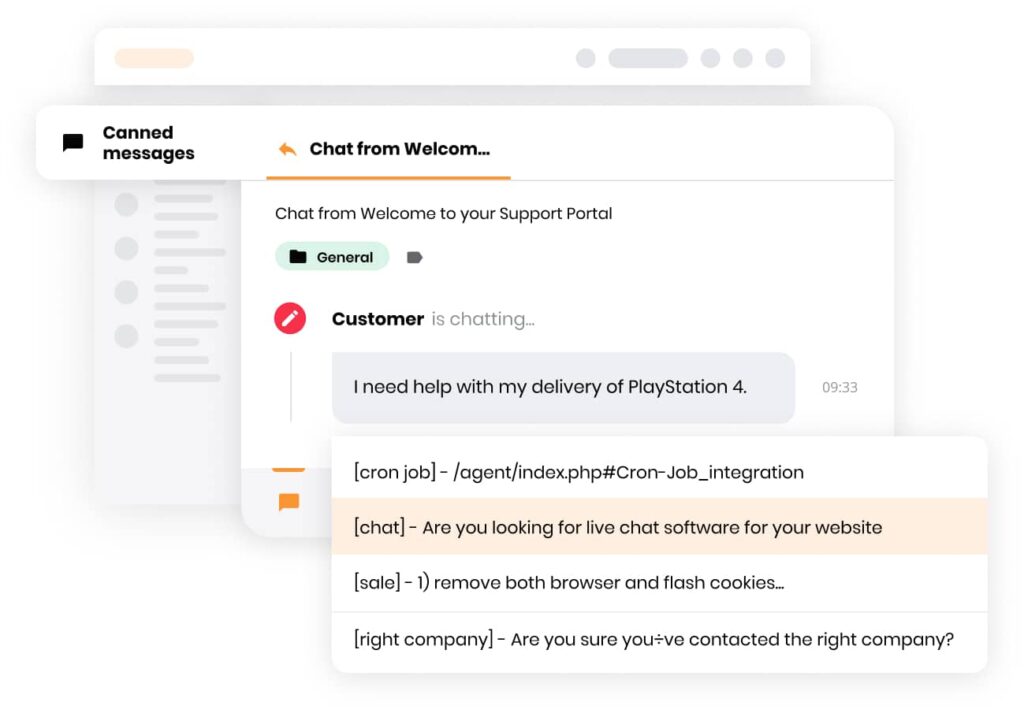
2. Fast response and resolution time
Timely responses are a cornerstone of effective customer service. Chat customers often gauge the quality of support based on how quickly their concerns are addressed. Delayed replies, even if unintentional, can escalate a customer’s frustration, potentially harming their perception of the company.
To mitigate this, leveraging features such as Real-Time Typing View in chat software is crucial. Agents can view customer queries as they are being typed. This provides a unique advantage as it allows agents to anticipate issues and formulate responses in advance. As a result, response times are significantly reduced.
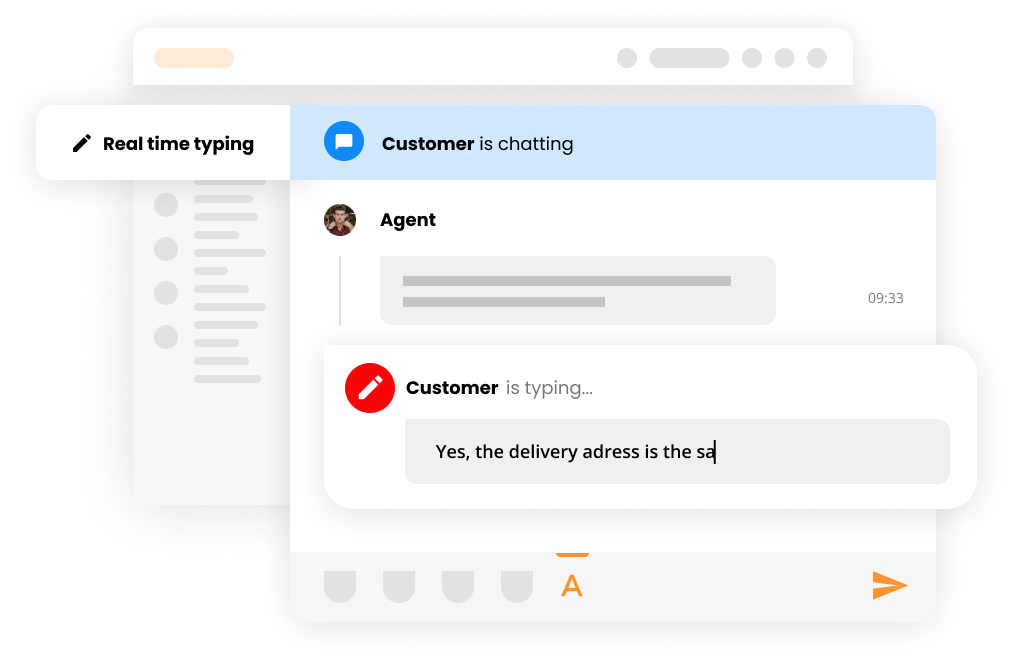
3. Multitasking skills
Multitasking is an indispensable customer service skill, especially when managing several chat conversations simultaneously. The ability to swiftly switch between different chats without losing track of each customer’s issue is crucial for maintaining efficient and responsive service.
Chat platforms that incorporate features like Internal Chat significantly aid in this process. They allow agents to communicate internally, seeking quick assistance or clarifications from colleagues, which in turn helps in providing accurate responses to customers promptly.
4. Empathy
When agents communicate empathetically, they acknowledge the customer’s situation, making them feel heard and valued .Empathy in customer service is about genuinely understanding and connecting with customers’ feelings and perspectives. This deep connection is crucial for not only addressing the issue at hand but also for ensuring that the customer feels cared for on a personal level.
Utilizing features like Customer Insights in chat platforms enables agents to tailor their approach for each customer. Having access to past interactions and preferences allows agents to personalize their responses, showing customers that they are not just another number, but valued individuals. This personalized approach to communication, underpinned by empathy, leads to more effective problem resolutions and a significantly enhanced customer experience.
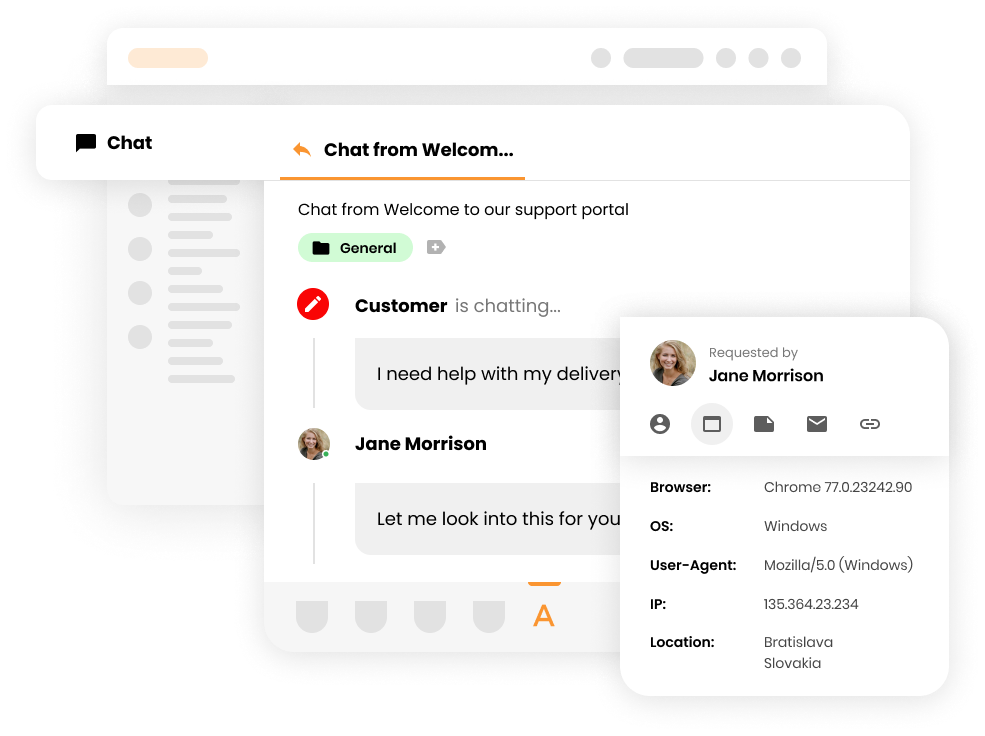
5. Problem-solving skills
Effective problem-solving is key in customer service, as quick and accurate solutions greatly enhance customer satisfaction. By integrating an Internal Knowledge Base feature within chat software, agents gain instant access to a vast array of information and resources.
This access is invaluable for promptly addressing and resolving a wide range of customer issues. It allows agents to provide well-informed solutions efficiently, thereby reducing resolution times and improving the overall customer experience. This kind of resourceful and swift problem-solving not only addresses customers’ immediate needs but also bolsters their confidence in the brand.
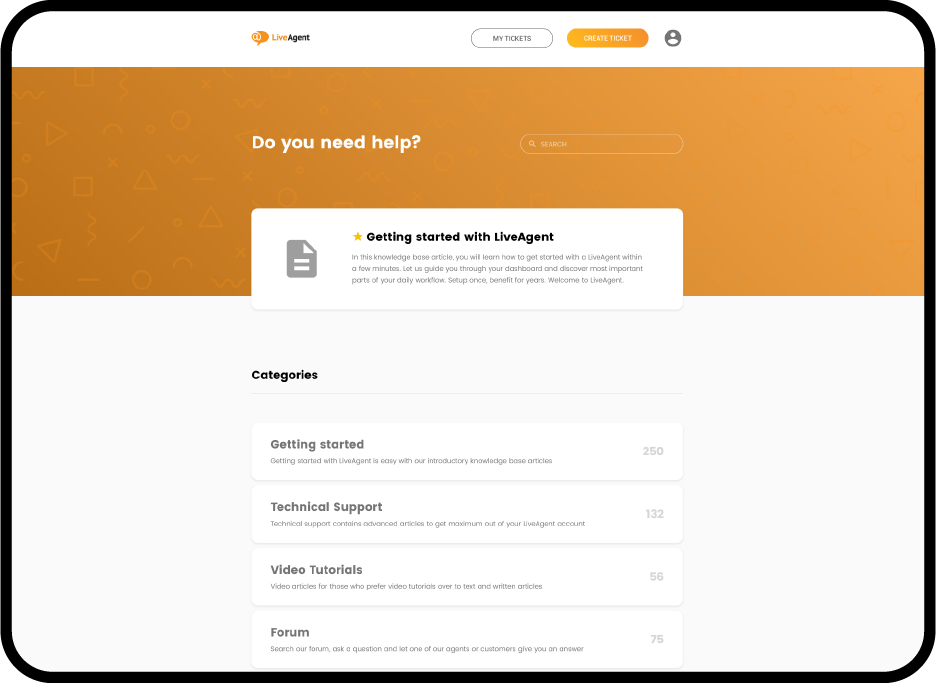
6. Typing and data entry
Fast and accurate typing is a vital skill in live chat support, as it directly impacts the efficiency of customer interactions. Quick typing ensures that customer queries are addressed promptly, which is crucial in maintaining a smooth and rapid conversation flow. Adopting IT help desk best practices can also significantly enhance the efficiency and accuracy of your customer service responses.
To support this need, chat platforms often include features that assist in monitoring and improving typing performance. These might include real-time grammar spelling check, auto-complete functions, and shortcuts for common phrases, which collectively help agents to type more quickly and accurately.
7. Industry expertise
The lack of industry-specific knowledge in customer service agents can lead to the provision of incorrect information, eroding customer trust.
For optimal customer service, it is essential to integrate industry-specific resources into the live chat system. By doing so, agents can access accurate and relevant information instantly. This ensures that their responses are knowledgeable and in line with industry standards. The integration of these resources improves response quality, thereby boosting customer confidence in the service provided.
8. Positive attitude
A positive approach to customer service is crucial, and the right chat software can greatly contribute to this. Gamification in customer service can greatly enhance agent engagement and performance. Features such as rewards, badges, levels, and leaderboards introduce healthy competition and collaboration, motivating agents to excel in their roles.
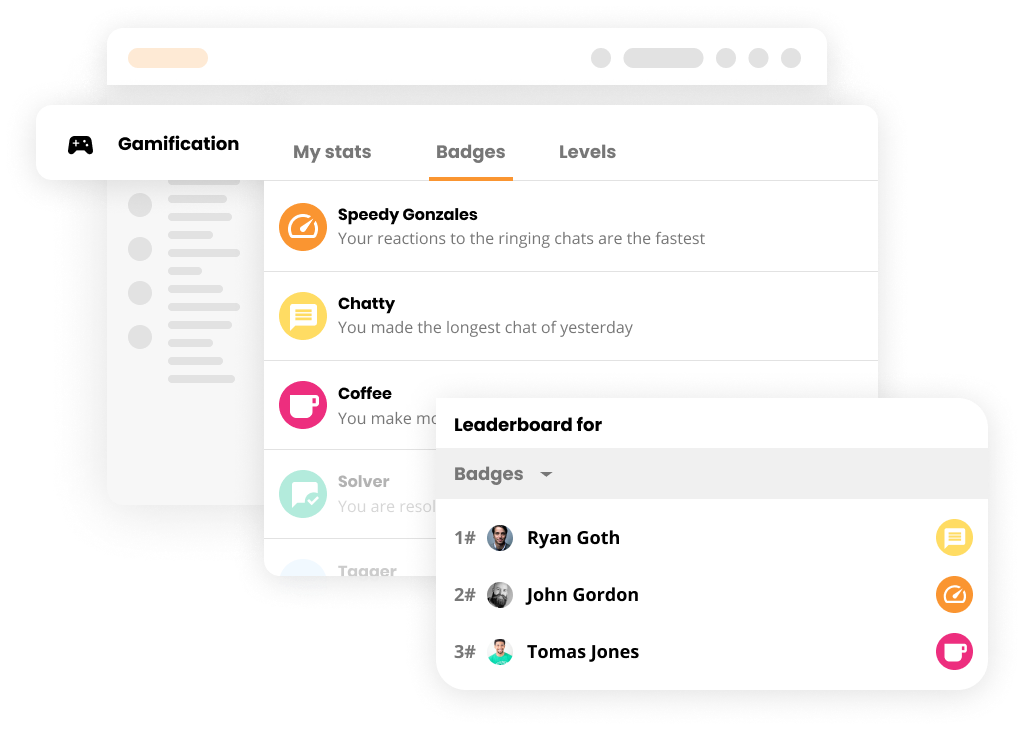
Such an approach makes the job more engaging and rewarding for agents, leading to increased productivity and efficiency. Consequently, gamified customer service results in more positive and effective interactions with customers, boosting overall satisfaction.
9. Understanding of brand voice
Maintaining consistent brand messaging is vital, and a Hybrid Ticket Stream feature significantly aids this. By merging all communication channels – including email, chat, social media, and phone – into a unified ticket stream, agents can ensure a consistent tone across all Hybrid Ticket Stream feature platforms.
This not only streamlines responses but also allows agents to quickly align their communication with the brand’s voice, enhancing brand consistency and reliability in every customer interaction.
10. Knowledge of the features offered by your live chat solution
Having in-depth knowledge of the features offered by your live chat solution is pivotal in delivering high-quality customer service. Adequate training and resources provided by the chat software play a crucial role in ensuring that agents are well-versed with all the functionalities available to them. This comprehensive understanding allows agents to effectively utilize these features, enhancing their ability to provide prompt and efficient service.
Ultimately, this leads to improved customer satisfaction and a more streamlined service experience, as agents are equipped to make the best use of the chat platform’s capabilities.
11. Prioritizing customers’ privacy
Ensuring customer privacy is a critical aspect of chat handling skills. A key challenge is protecting sensitive information during live chat interactions. A solution to this is the implementation of secure data encryption within the live chat software. This feature encrypts all communications, safeguarding personal and confidential customer data from unauthorized access.
Customer service agents prioritize secure encryption to ensure that customers’ private information remains confidential. By doing so, they foster trust and create a sense of security. Besides the fact that it’s a compliance requirement – it’s a fundamental aspect of delivering a respectful and professional customer service experience.
12. Being open to new ideas
Embracing new ideas and approaches is vital in the dynamic field of customer service. A challenge arises when agents are resistant to change, potentially hindering the adoption of innovative practices. A live chat feature that fosters this openness is the feedback and suggestion system. This allows agents to contribute ideas for improving the chat service and to receive feedback on their performance.
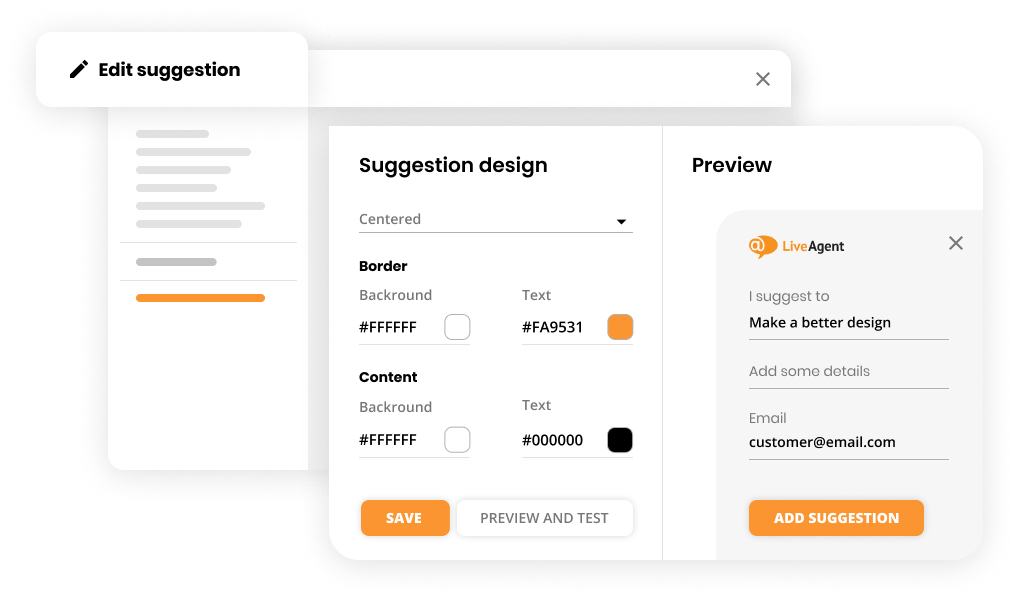
By encouraging agents to engage with and suggest new features or workflows, companies can cultivate a culture of continuous improvement, leading to more effective customer service strategies and a more adaptive, forward-thinking team.
Best practices to manage a customer service team
Effective management of a customer service team, particularly in live chat, involves a strategic approach focused on continuous improvement and efficiency. Regular training sessions are essential to ensure that agents are proficient with the latest chat tools and customer service techniques. Additionally, performance monitoring using analytics from chat software is critical for identifying areas that require enhancement and acknowledging outstanding agent performance.
Fostering a collaborative environment through internal communication channels is vital for effective knowledge sharing and support among team members. Setting clear, measurable goals helps maintain focus and drive consistent performance. Additionally, incorporating a feedback mechanism from both agents and customers aids in continual service refinement, ensuring the team not only meets but exceeds customer expectations. For further insights into these strategies, you can check out our live chat best practices guide.
Why should you hire a chat support agent for your team?
- Efficient handling of high volume inquiries: Chat support agents are skilled in managing multiple conversations simultaneously. This leads to improved response times and elevates overall customer satisfaction by addressing a large number of inquiries efficiently.
- Immediate assistance in a digital world: The ability to provide prompt support through chat is essential in today’s fast-paced environment. Chat support agents offer quick and effective solutions, meeting the current expectations of customers for immediate help.
- Personal touch in customer interactions: Direct communication through chat support adds a personalized element to customer service. This approach strengthens customer relationships, resulting in more engaging and satisfying experiences.
- Valuable customer feedback collection: Chat agents play a crucial role in gathering firsthand customer feedback. This feedback is vital for continuous improvement in products and services, offering insights that help businesses stay attuned to customer needs and market trends.
- Real-time feedback mechanism: The immediate nature of chat support provides a real-time mechanism for collecting customer feedback, which is particularly beneficial for businesses aiming to quickly adapt to customer preferences and emerging market trends to effectively acquire customers.
How do you hire the best live chat agents?
It’s essential to understand and compare different hiring approaches. Research shows that successful chat agents possess a blend of excellent communication skills, empathy, problem-solving abilities, and adaptability. When researching candidates, consider using specialized job portals that focus on customer service or live chat support roles. These platforms can provide access to a pool of qualified candidates with relevant chat experience.
During the interview process, ask questions that assess the candidate’s ability to handle common chat scenarios, their approach to problem-solving, and how they adapt to fast-paced and sometimes stressful situations. Questions could include:
- How would you handle a customer who is frustrated or angry?
- Can you give an example of a complex issue you resolved, and how did you do it?
- How do you manage simultaneous chats without compromising on quality?
- Describe a time when you had to adapt to a significant change in your work environment. How did you handle it?
These questions help evaluate the candidate’s practical skills and their alignment with the specific demands of a live chat support role.
Conclusion
In a world where customer service is paramount, mastering these essential live chat handling skills becomes the key to unlocking customer satisfaction and loyalty. From effective communication to swift responses, empathy, and problem-solving, these skills shape memorable customer interactions. They’re not just nice-to-haves; they’re the secret sauce that keeps customers coming back for more.
So, don’t just read about them—put them into action and experience the difference in your customer service. Ready to elevate your customer support game? Try our 30-day free trial and embark on a journey of superior live chat handling.
Supercharge your customer service with LiveAgent's live chat software.
Try it free for 30 days and witness the difference in customer satisfaction and efficiency. Elevate your support game today!
Frequently Asked Questions
Hhow do you make chat flow?
Chat flow is enhanced by understanding the conversation's context and purpose, listening actively, maintaining a balance in contributions, and responding thoughtfully. Open-ended questions can boost engagement and keep the conversation dynamic. Transition phrases enhance the flow, while acknowledging others' contributions ensures inclusivity. Consideration of tone, pace and nonverbal cues further fosters a respectful and interactive chat flow.
How do you train your live chat agents?
Train live chat agents by providing comprehensive product knowledge, communication skills, and empathy training. Conduct role-playing exercises to improve their live chat etiquette and problem-solving abilities. You should also encourage your agents to share live chat tips between.
How do you ask for customer feedback?
To gather customer feedback effectively, consider sending post-chat surveys or follow-up emails with specific questions about their experience. Make it simple and convenient for customers to share their thoughts.
How many chats should an agent handle in a day?
The number of chats an agent can handle per day varies, but typically ranges from 15 to 25 chats per hour, depending on the complexity of the inquiries and the agent's skill level.
How can AI help live chat agents?
AI can assist live chat agents by automating routine tasks, suggesting responses, and providing real-time customer data for personalization. It enhances efficiency and allows agents to focus on more complex customer interactions.
How do you handle multiple chats at the same time?
Handling multiple chats simultaneously requires efficient chat management tools that enable agents to switch between conversations seamlessly while maintaining the quality of service and response time.
What is a good chat response time?
A good chat response time typically falls within 15–30 seconds. This ensures that customers receive timely assistance, reducing wait times and enhancing their overall experience.
What is a chat flow?
A chat flow refers to the sequence of interactions between a user and a chatbot or virtual assistant. It outlines the path that a conversation takes, including the questions asked, the responses given, and any potential branches or decision points based on the user's input. Chat flows are designed to guide the conversation in a logical and helpful manner, ensuring that the user's needs are met and their questions are addressed effectively. For example, in a customer service chatbot, the chat flow would be designed to lead the user through troubleshooting steps or gather necessary information to resolve their issue.
Share this article
Measure and improve key live chat metrics for your success
Are you ready to chat your way to success? Discover the power of live chat metrics and KPIs that will supercharge your business in 2024.
Mastering customer communication: LiveAgent’s best practices and strategies
Master the art of customer communication with best practices, tools, and strategies. Learn how to enhance interactions and boost customer satisfaction.
Live chat security: 10 best practices for secure live chat
Discover the importance of live chat security, common threats, and best practices to safeguard your business and customers in real-time communication.

 Български
Български  Čeština
Čeština  Dansk
Dansk  Deutsch
Deutsch  Eesti
Eesti  Español
Español  Français
Français  Ελληνικα
Ελληνικα  Hrvatski
Hrvatski  Italiano
Italiano  Latviešu
Latviešu  Lietuviškai
Lietuviškai  Magyar
Magyar  Nederlands
Nederlands  Norsk bokmål
Norsk bokmål  Polski
Polski  Română
Română  Русский
Русский  Slovenčina
Slovenčina  Slovenščina
Slovenščina  简体中文
简体中文  Tagalog
Tagalog  Tiếng Việt
Tiếng Việt  العربية
العربية  Português
Português 